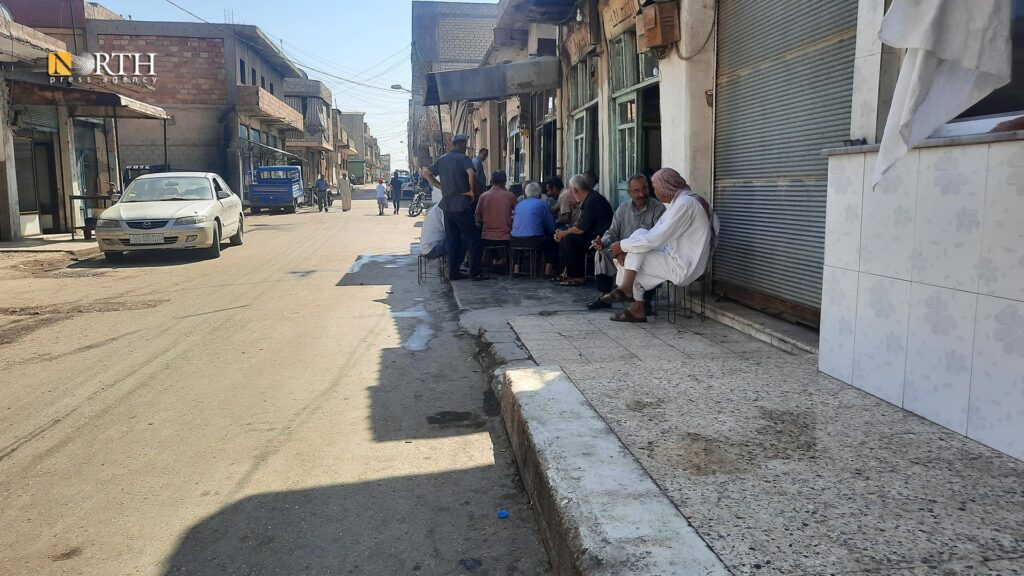HASAKAH, Syria (North Press) – Despite his urgent need to buy a house, Ali Ibrahim, 47, from the town of Derbasiyah in the northern countryside of Hasakah Governorate, northeastern Syria, does not venture into such a step for fear of Turkey to launch a military operation.
Ibrahim cannot make a step towards buying a new house for him for fear to lose it, and all the money he has been saving for years for this particular purpose in case Turkey carries out its threats and invades the region.
“Since the start of Turkish threats on our region, we have been living like handcuffed. We cannot venture into a project related to our future,” the man said.
Continued Turkish threats cast a negative shadow on the people whom are afraid of taking any step forward regarding their future, instead, they are living their life day by day, without even thinking of any future plans.

Derbasiyah is close to the frontline that separates Turkish-backed armed opposition factions, also known as Syrian National Army (SNA), stationed in Sere Kaniye (Ras al-Ain) from Syrian Democratic Forces (SDF) deployed in the areas run by the Autonomous Administration of North and East Syria (AANES).
The AANES was first formed in 2014 in the Kurdish-majority regions of Afrin, Kobani and Jazira in northern Syria following the withdrawal of the government forces. Later, it was expanded to Manbij, Tabqa, Raqqa, Hasakah and Deir ez-Zor after the SDF defeated ISIS militarily there.
Since the start of the Turkish threats, people of Derbasiyah have been suffering from social and economic stagnation, so that their lives remain hostage to the military developments.
Ibrahim accuses some of the town’s merchants of taking advantage of the Turkish threats by “storage of materials, monopolizing some of food items, and then remarketing them back again but at higher prices.”
Aziz Mousa, 45, believes that the Turkish threats and the lack of materials in the markets are the main reasons of the high prices.
The status of Ali Ma’ao, a 36-year-old farmer, does not differ from other people because he also does not intend to plant his 200-acre-farm fearing that Turkey may launch a military operation.
For years, he used to plant his farm with different kinds of crops, and he was even thinking of planting wheat for the next seasons, but “the threats are preventing me from doing it.”
Ma’ao, who will be facing challenges in providing food for his family after he decided not to plant his field, assures that many farmers has done the same and left their fields empty.
People of Derbasiyah mainly depends on farming as a basic and essential funding, and thus by leaving their lands, farms, and fields empty without planting any seeds in them, will negatively affect their livelihood and will definitely cause more economic damages, especially that the area has faced a big wave of drought.

